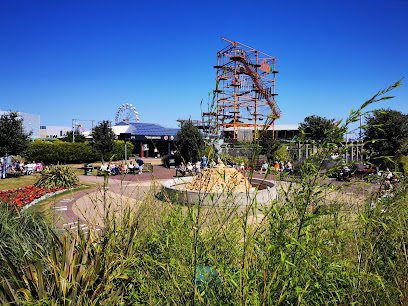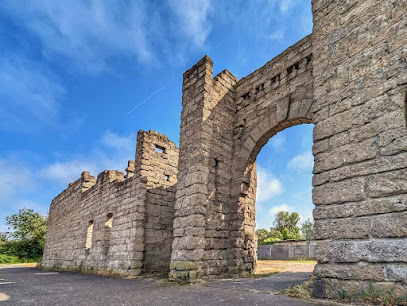
Skegness: The Seaside Gem of Lincolnshire
Skegness, a charming seaside town in Lincolnshire, is perfect for a classic British beach holiday. With its beautiful sandy beaches, you'll find plenty of space to relax, build sandcastles, and enjoy the fresh sea air. The iconic Skegness Pier offers amusement arcades, funfair rides, and spectacular views of the coastline. Beyond the beach, Skegness boasts a lively town center with shops, cafes, and restaurants. Don't miss the Skegness Aquarium, where you can explore marine life from around the world. The Natureland Seal Sanctuary is another must-visit, especially for families. Here, you'll see seals, penguins, and other rescued animals up close. For those interested in history, the Church Farm Museum provides a glimpse into rural life in the past. Wander through the gardens and historic buildings to learn about the area's agricultural heritage. Whether you're looking for relaxation or adventure, Skegness has something for everyone.
Local tips in Skegness
- Visit early in the morning to beat the crowds at popular attractions like Skegness Pier and the beach.
- Check the tide times before planning your beach day to ensure the best experience.
- Consider staying in a local bed and breakfast for a more authentic experience.
- Pack a picnic to enjoy on the beach or in one of the town's parks.
- Don't forget to bring a windbreaker as it can get breezy along the coast.
Skegness: The Seaside Gem of Lincolnshire
Skegness, a charming seaside town in Lincolnshire, is perfect for a classic British beach holiday. With its beautiful sandy beaches, you'll find plenty of space to relax, build sandcastles, and enjoy the fresh sea air. The iconic Skegness Pier offers amusement arcades, funfair rides, and spectacular views of the coastline. Beyond the beach, Skegness boasts a lively town center with shops, cafes, and restaurants. Don't miss the Skegness Aquarium, where you can explore marine life from around the world. The Natureland Seal Sanctuary is another must-visit, especially for families. Here, you'll see seals, penguins, and other rescued animals up close. For those interested in history, the Church Farm Museum provides a glimpse into rural life in the past. Wander through the gardens and historic buildings to learn about the area's agricultural heritage. Whether you're looking for relaxation or adventure, Skegness has something for everyone.
When is the best time to go to Skegness?
Iconic landmarks you can’t miss
Unmissable attractions to see
Fantasy Island
A vibrant coastal amusement park and Europe’s largest seven-day market offering thrilling rides, family fun, and lively entertainment in Ingoldmells.
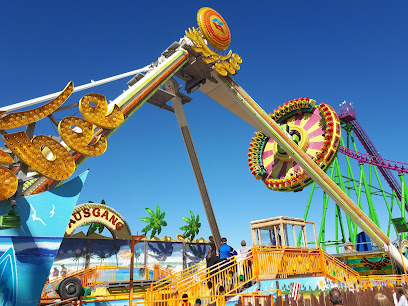
Butlin's Skegness Resort
A lively family resort on England’s east coast offering nonstop entertainment, funfair thrills, and splash-filled adventures for all ages.

Skegness Pier
Historic seaside pier blending nostalgic charm with modern family fun, arcades, rides, and vibrant beachside bars in Lincolnshire.
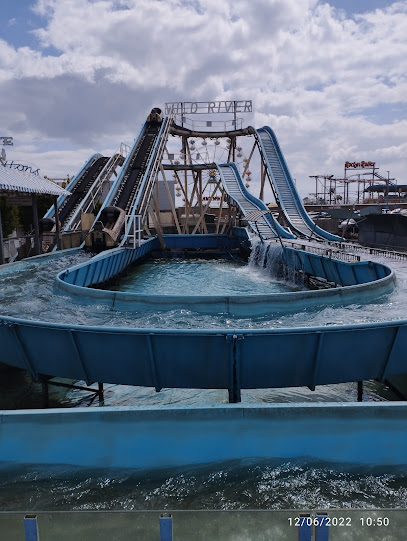
Natureland Seal Sanctuary (Skegness)
Discover rescued seals and exotic wildlife in a family-friendly sanctuary dedicated to conservation and education on the Lincolnshire coast.
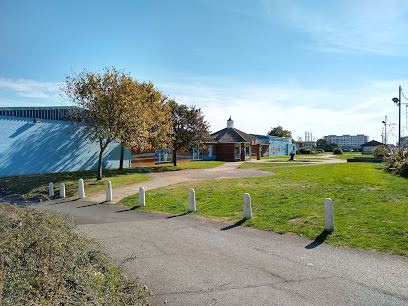
Skegness Aquarium
Dive into the vibrant underwater world of Skegness Aquarium, where marine wonders and family fun come together on the Lincolnshire coast.
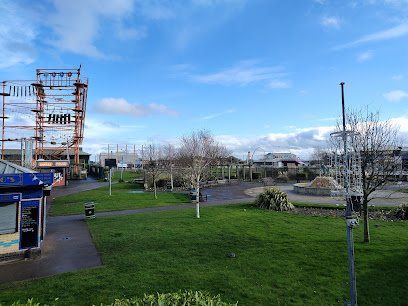
Skegness Beach
Experience the timeless charm of Skegness Beach, a family-friendly golden sandy coast with lively attractions and classic British seaside fun.
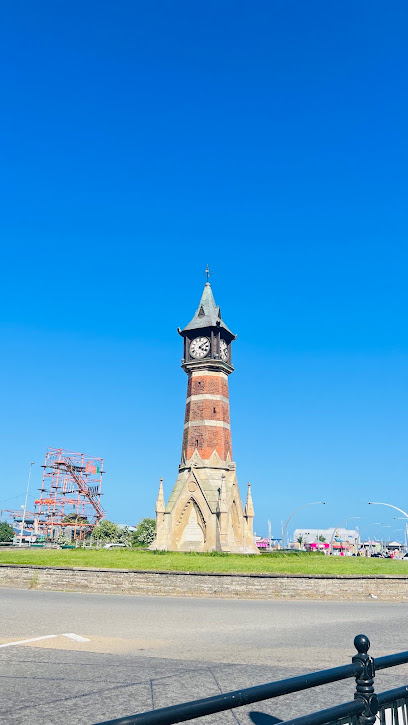
Gibraltar Point National Nature Reserve
Explore 1,100 acres of unspoilt Lincolnshire coastline rich in wildlife, seasonal bird migrations, and tranquil natural beauty.
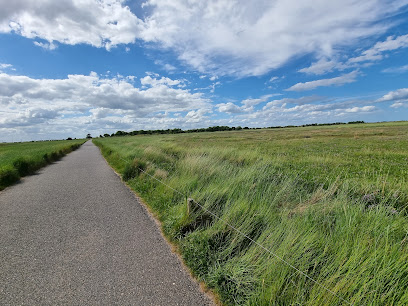
Skegness Pleasure Beach
Experience timeless seaside fun with classic rides and family-friendly thrills at Skegness Pleasure Beach on the Lincolnshire coast.
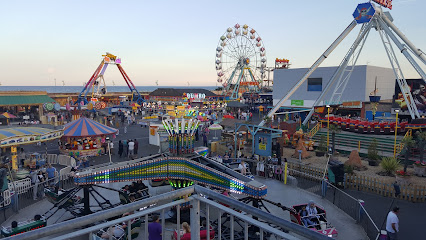
Tattershall Farm Park
A delightful family farm park in Lincolnshire offering animal encounters, soft play, and seasonal events for children under 10.
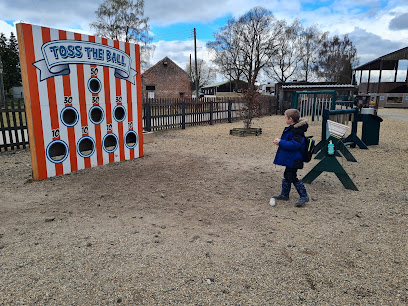
National Trust - Gunby Estate, Hall and Gardens
Discover Gunby Estate’s charming 18th-century hall and vibrant Victorian gardens nestled in the peaceful Lincolnshire Wolds countryside.
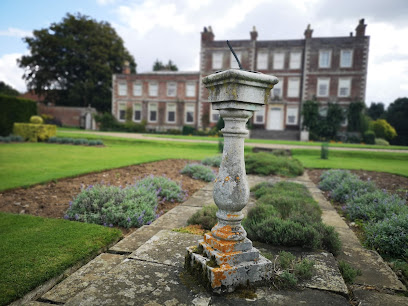
Gibraltar Point & Visitors Centre
Explore Lincolnshire’s coastal gem for exceptional birdwatching, accessible trails, and unspoilt natural beauty at Gibraltar Point.
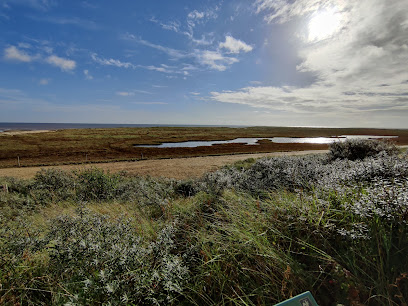
Skegness Raceway
Experience the thrill of top-tier banger and stock car racing at Skegness Raceway, Lincolnshire’s premier motorsport venue.
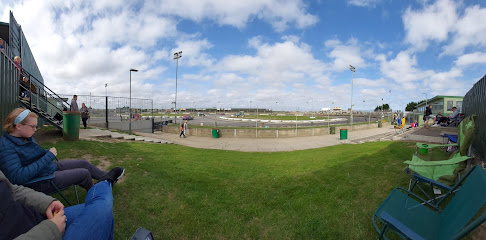
Tower Gardens
Skegness's cherished green heart—beautifully maintained gardens and inclusive play spaces for all ages.
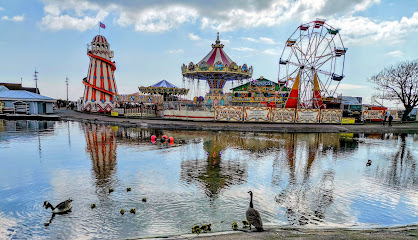
Hardy's Animal Farm
Discover hands-on farm fun, animal encounters, and family-friendly activities just minutes from Skegness beach in Lincolnshire’s countryside.
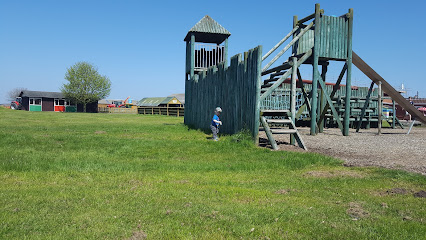
The Village Church Farm Skegness
Step back in time at The Village Church Farm, where Lincolnshire’s rural heritage is brought to life through historic buildings, farming exhibits, and warm volunteer hospitality.
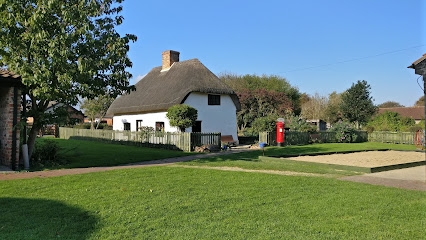
Essential places to dine
Raff55
Skegness’s vibrant all-you-can-eat buffet and grill offering diverse cuisines, live cooking, and unbeatable value for every meal.
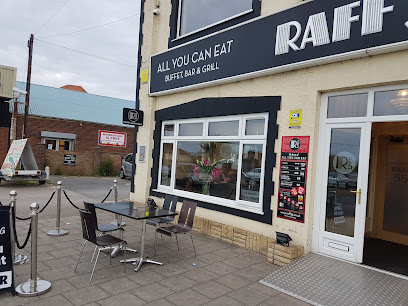
Wolfies Wine Bar
Contemporary wine bar in Skegness offering quality wines, hearty meals, and a friendly, spacious setting near the beach.
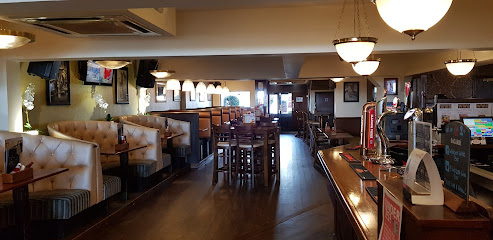
The Steamboat Cookhouse + Pub
Seafront dining in Skegness offering hearty British classics, family-friendly meals, and a welcoming atmosphere just steps from the beach.
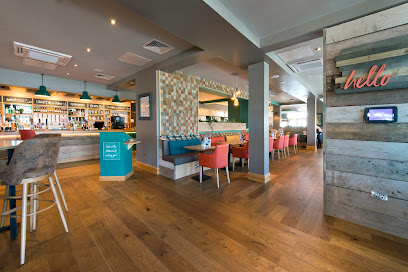
Poppy's Restaurant
A welcoming British restaurant in Skegness offering hearty breakfasts, classic lunches, and great value in a bright, family-friendly setting.
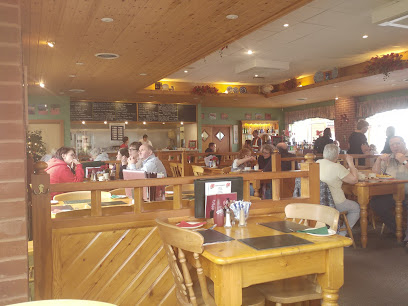
The Welcome Inn
A lively family-friendly pub in Skegness offering hearty home-cooked meals, spacious outdoor seating, and a welcoming atmosphere for all ages.
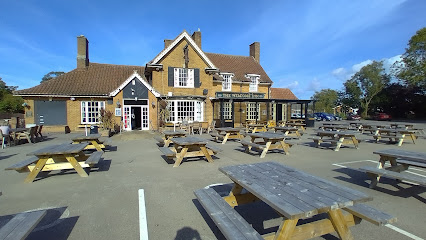
Tarantino Restaurant
Experience authentic Italian flavors and fresh seafood in a relaxed seaside setting at Tarantino Restaurant, Skegness’s beloved Italian eatery.
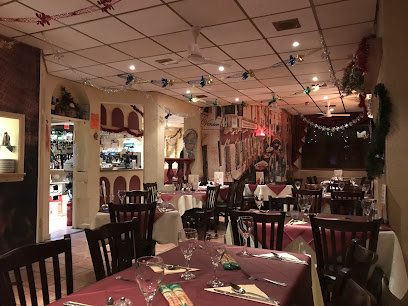
San Rufo’s Italian Restaurant
Authentic Italian dining with generous portions and warm family hospitality in the heart of Skegness.
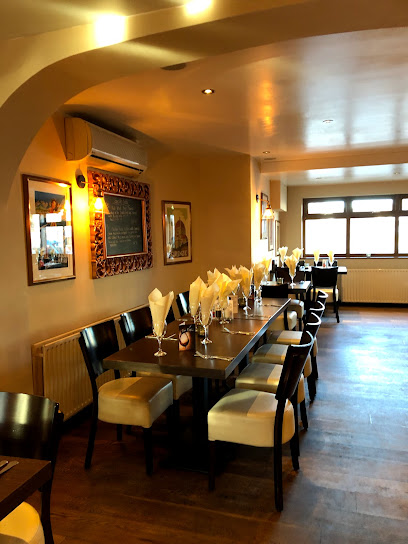
Aroma Italian restaurant
Experience authentic Italian cuisine with generous portions and warm hospitality in the cozy, rustic charm of Aroma Italian Restaurant in Skegness.
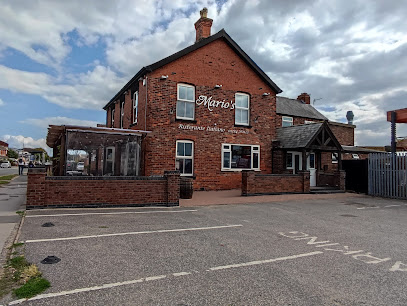
Steak N Stuff
Savor perfectly cooked, juicy steaks with generous portions and homemade sauces in a friendly, casual Skegness steakhouse.
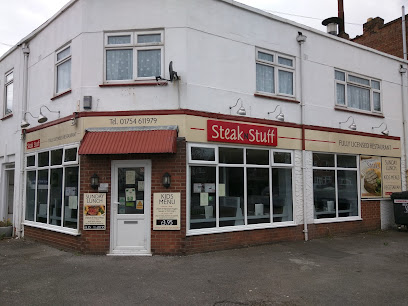
Arnolds Diner
Classic British breakfast served fresh and hearty in a friendly, casual diner setting on Heath Road, Skegness.
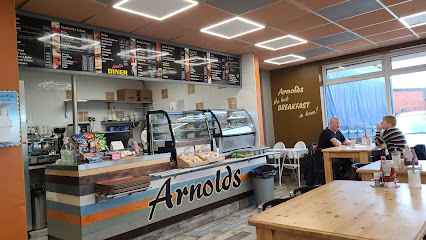
No9
A welcoming fusion of Greek and British flavors in Skegness, offering fresh dishes and friendly service in a relaxed, contemporary setting.
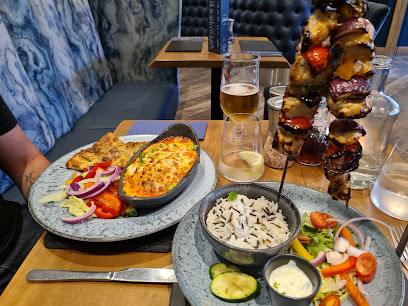
Lusso by lanzetta
Experience authentic Italian flavors and warm hospitality in the heart of Skegness at Lusso by Lanzetta.
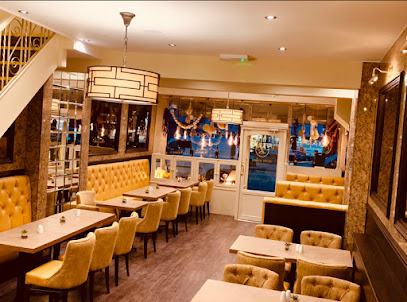
The Olive
Cozy Italian and Mediterranean dining with authentic flavors and warm hospitality on Skegness’s Roman Bank.
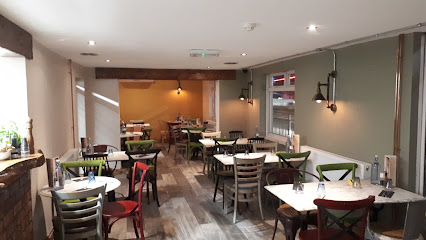
Lucky eater restaurant
Seaside dining with generous portions, family-friendly fun, and classic British fare on Skegness’s vibrant Grand Parade.
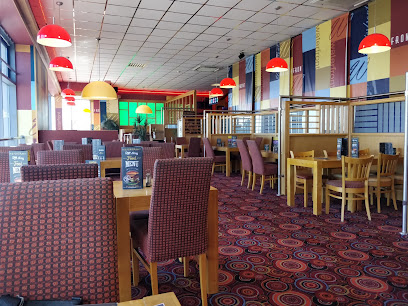
Tower Cafe
Cozy cafe in Skegness serving classic British dishes and beloved homemade cakes in a friendly, welcoming atmosphere.
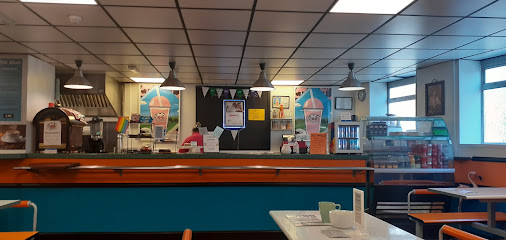
Markets, malls and hidden boutiques
Hildreds Shopping Centre
A friendly, compact shopping centre in Skegness blending independent boutiques with popular brands for a diverse retail experience.
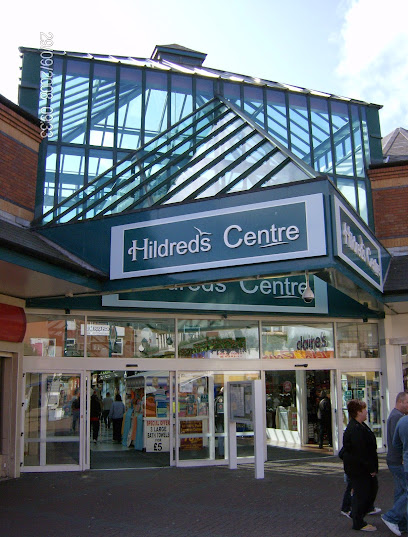
Bonmarché
Affordable, stylish ladies' fashion in inclusive sizes, right in the heart of Skegness.

Spalls of Skegness
Discover unique gifts and local treasures at Spalls of Skegness, a family-run shop with over 20 years of charm and character.

Alisons
Discover diverse fashion and friendly service at Alisons, Skegness’s welcoming clothing shop on Lumley Road.
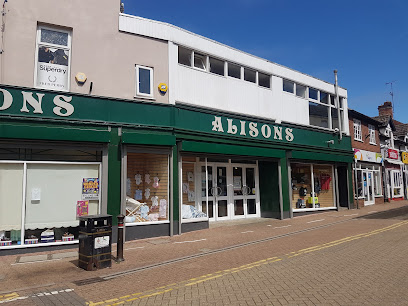
Allsorts
Discover unique seaside treasures and quirky gifts at Allsorts, Skegness’s beloved gift shop open daily for charming coastal finds.
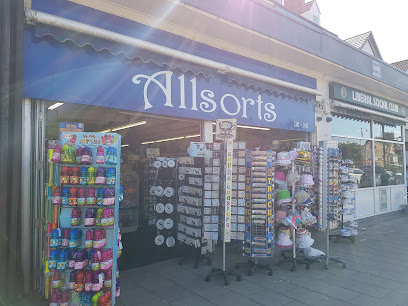
Home & Fragrance (Hildreds Shopping Centre Skegness)
Discover charming home scents and thoughtful gifts in the heart of Skegness at Home & Fragrance, Hildreds Shopping Centre.
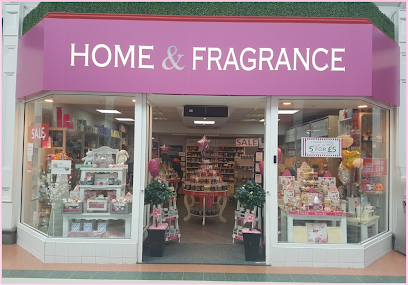
The Works
Creative inspiration and screen-free fun for all ages in Skegness's premier gift and craft shop.
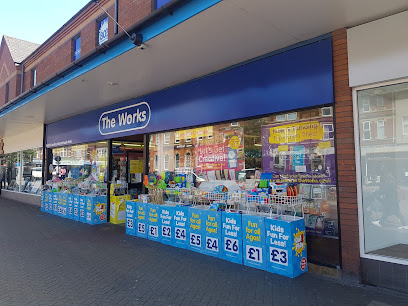
Name Factory
Skegness’s trusted boutique for over 30 years, crafting personalized gifts with quality vinyl and expert printing on High Street.
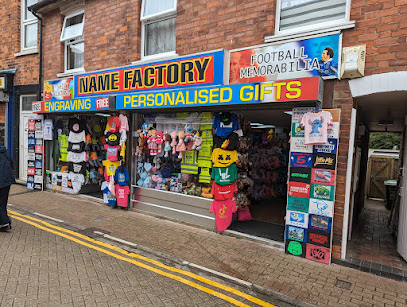
Gold ‘N’ Gifts
Discover unique jewellery and memorable gifts in the heart of Skegness at Gold ‘N’ Gifts, your charming local treasure trove.
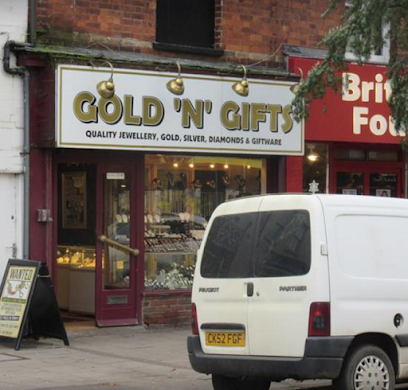
Fiesta Gifts
Discover vintage treasures, quirky gifts, and retro fashion at Fiesta Gifts, Skegness’s charming boutique in the heart of town.
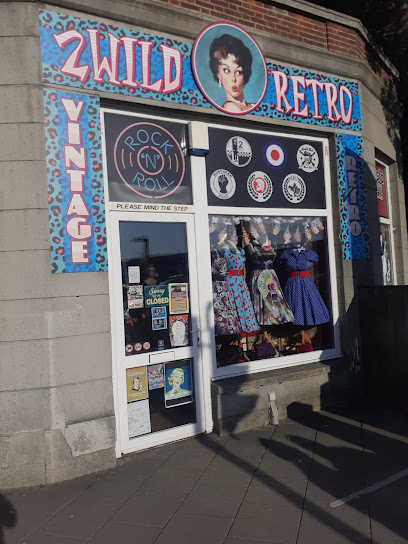
The Edinburgh Woollen Mill
Discover timeless British knitwear and classic clothing styles at The Edinburgh Woollen Mill, Skegness' premier heritage clothing shop.
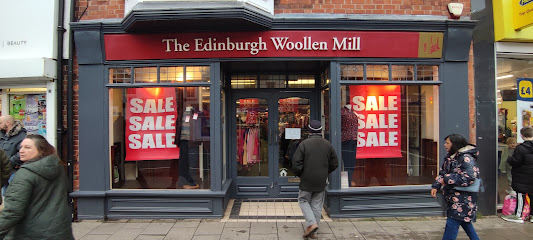
IQ Stores
Discover stylish apparel and friendly service at IQ Stores, Skegness’s evening fashion destination on Lumley Road.

Oliver Twist
Discover unique, stylish fashion accessories at Oliver Twist, a charming boutique in Skegness’s vibrant High Street.
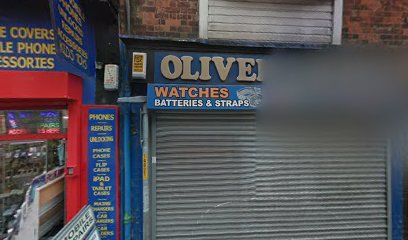
2 WILD RETRO
Discover authentic vintage treasures and sustainable retro fashion in the heart of Skegness.
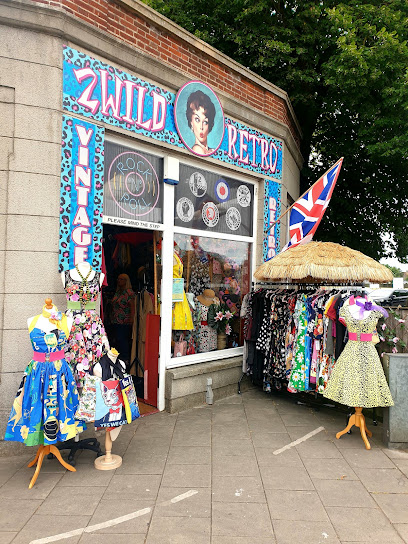
So Peachy
Discover stylish fashion and friendly service at So Peachy, Skegness’s boutique gem on Lumley Road.
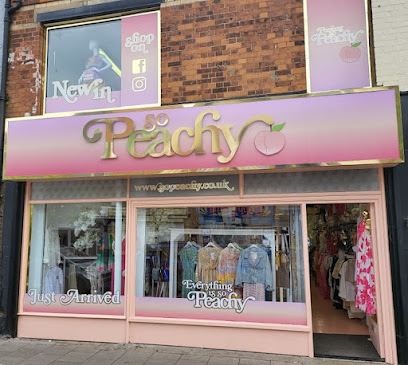
Essential bars & hidden hideouts
The Red Lion - JD Wetherspoon
Historic charm meets classic British pub fare in the heart of Skegness at The Red Lion - JD Wetherspoon.
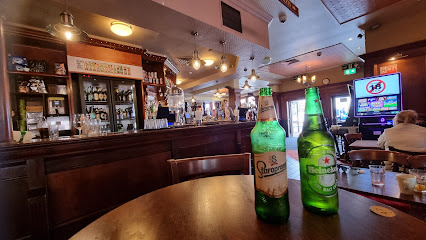
Marine Boat House Bar
A lively traditional pub in Skegness serving hearty British carvery and classic seaside dishes in a casual, family-friendly atmosphere.
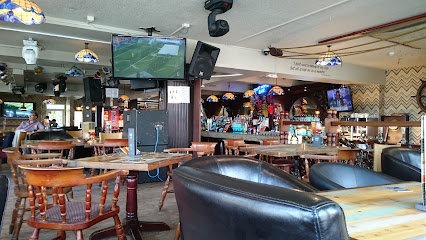
White Horse
A cosy, community-driven pub in Skegness offering hearty meals, lively sports, and a dog-friendly atmosphere all day long.
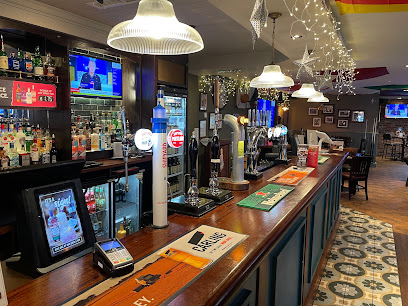
Wolfies Wine Bar
A stylish Skegness wine bar and restaurant offering diverse food, drinks, and a relaxed, dog-friendly atmosphere near the seafront.
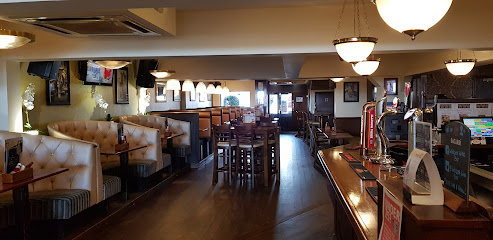
The Steamboat Cookhouse + Pub
Seafront pub and restaurant in Skegness serving hearty British classics with great value, friendly service, and a family-friendly atmosphere.
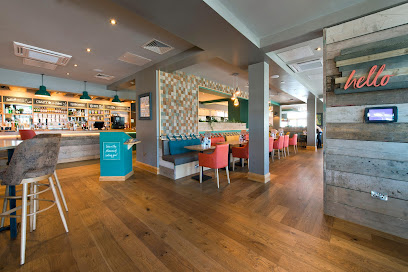
The Lookout Public House
A lively, family-friendly coastal pub in Ingoldmells offering hearty homemade food, friendly service, and weekend entertainment.
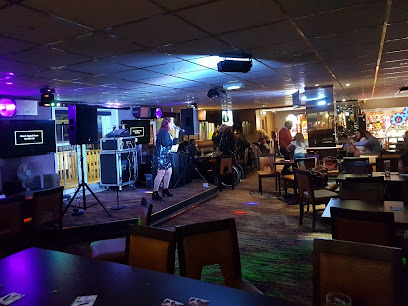
The Lumley
A historic Skegness pub blending classic charm with modern comfort and locally sourced fare in a welcoming atmosphere.
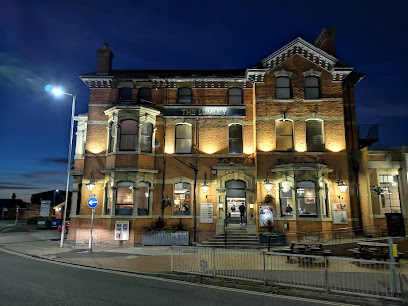
Suncastle
A lively family-friendly pub and live music venue near Skegness seafront, offering hearty meals and a large children’s play area.
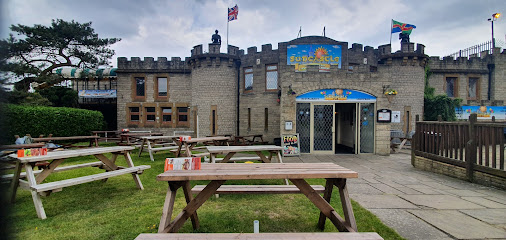
The Ship & Atlantic Bar
A vibrant, art deco pub in Skegness offering hearty food, lively entertainment, and a welcoming atmosphere by the seaside.
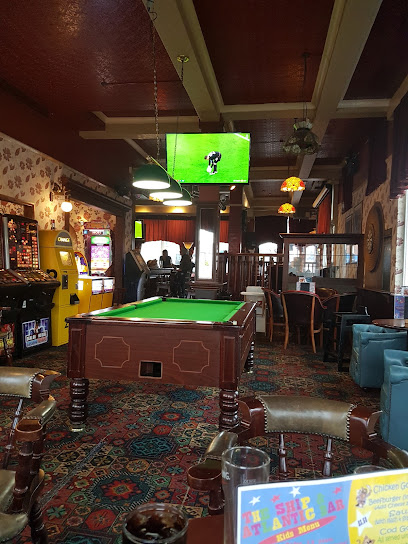
Churchill's
A unique British pub in Skegness featuring aircraft seating, lively sports viewing, and classic pub fare in a welcoming atmosphere.
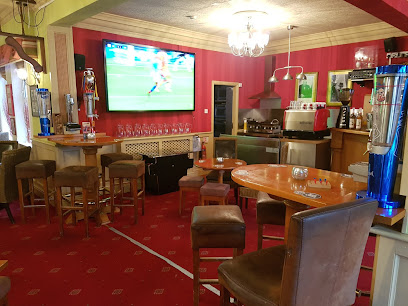
Wellies Bar
A lively Skegness bar with huge screens, diverse drinks, and a vibrant atmosphere for sports fans and social nights.
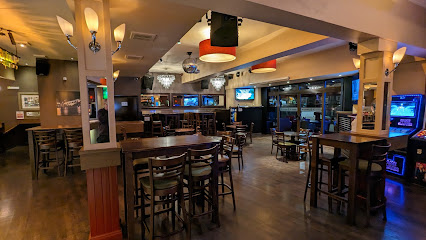
Busters Fun Pub
Lively pub and music venue in Skegness offering 80s throwbacks, live bands, and late-night fun in a vibrant seaside setting.
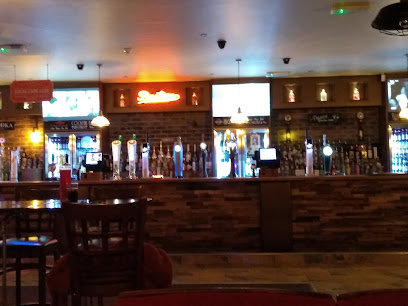
The Jolly Fisherman
A lively seaside pub in Skegness offering traditional British fare, friendly service, and a casual coastal atmosphere.
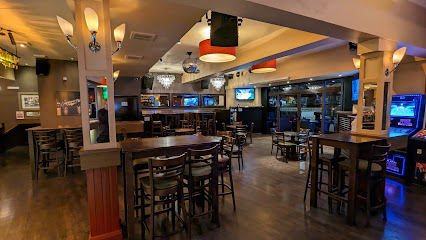
The WaterHole
A friendly and classic Skegness pub offering real ales, hearty food, and a relaxed, dog-friendly atmosphere in the heart of town.
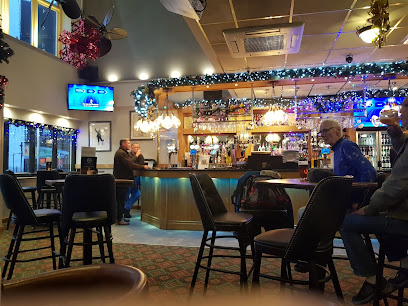
Local Phrases about Skegness
-
- HelloAy-up
[ay-up] - GoodbyeTa-ra
[ta-ra] - YesAye
[aye] - NoNah
[nah] - Please/You're welcomeTa
[ta] - Thank youCheers
[cheers] - Excuse me/SorrySorree
[sorree] - How are you?Ow do?
[ow do?] - Fine. And you?Reet. An' you?
[reet. an' you?] - Do you speak English?D'ya speak English?
[d'ya speak English?] - I don't understandAh don't get ya
[ah don't get ya]
- HelloAy-up
-
- I'd like to see the menu, pleaseCan Ah see t' menu, please
[can ah see t' menu, please] - I don't eat meatAh don't eat meat
[ah don't eat meat] - Cheers!Prost!
[prost!] - I would like to pay, pleaseAh'd like t' pay, please
[ah'd like t' pay, please]
- I'd like to see the menu, pleaseCan Ah see t' menu, please
-
- Help!Eeelp!
[eeelp!] - Go away!Clear off!
[clear off!] - Call the Police!Ring the Rozzers!
[ring the rozzers!] - Call a doctor!Ring t' quack!
[ring t' quack!] - I'm lostAh'm lost
[ah'm lost] - I'm illAh'm poorly
[ah'm poorly]
- Help!Eeelp!
-
- I'd like to buy...Ah'd like t' buy...
[ah'd like t' buy...] - I'm just lookingAh'm just lookin'
[ah'm just lookin'] - How much is it?Ow much is it?
[ow much is it?] - That's too expensiveThat's reyt dear
[that's reyt dear] - Can you lower the price?Can ya knock a bit off?
[can ya knock a bit off?]
- I'd like to buy...Ah'd like t' buy...
-
- What time is it?Wot time is it?
[wot time is it?] - It's one o'clockIt's one o'clock
[it's one o'clock] - Half past (10)Half past ten
[half past ten] - MorningMornin'
[mornin'] - AfternoonAfternoon
[afternoon] - EveningEvenin'
[evenin'] - YesterdayYesterday
[yesterday] - TodayToday
[today] - TomorrowTomorrow
[tomorrow] - 1One
[one] - 2Two
[two] - 3Three
[three] - 4Four
[four] - 5Five
[five] - 6Six
[six] - 7Seven
[seven] - 8Eight
[eight] - 9Nine
[nine] - 10Ten
[ten]
- What time is it?Wot time is it?
-
- Where's a/the...?Where's a/the...?
[where's a/the...?] - What's the address?Wot's t' address?
[wot's t' address?] - Can you show me (on the map)?Can ya show me (on t' map)?
[can ya show me (on t' map)?] - When's the next (bus)?When's t' next (bus)?
[when's t' next (bus)?] - A ticket (to ....)A ticket (to ....)
[a ticket (to ....)]
- Where's a/the...?Where's a/the...?
History of Skegness
-
Skegness, a coastal town in Lincolnshire, has a rich history that traces back to its early beginnings. The area was settled by the Anglo-Saxons, but it was the Vikings who left a more profound mark. The name 'Skegness' is derived from the Old Norse words 'Skeggi' meaning 'beard' and 'ness' meaning 'headland,' indicating the Viking influence. The presence of Viking artifacts in the region is a testament to their occupation and influence on local culture.
-
During the medieval period, Skegness emerged as a modest market town. The town's economy was primarily driven by agriculture and fishing. Local markets were held regularly, where traders from nearby villages would come to sell their goods. The medieval church of St. Clement, with its origins in the 13th century, stands as a historical landmark from this era, reflecting the town's medieval heritage.
-
One of the most significant events in Skegness's history was the Great Storm of 1571. The storm caused severe flooding and extensive damage to the town, reshaping its coastline. Many buildings were destroyed, and the local economy suffered greatly. However, the resilient townspeople rebuilt Skegness, and the event is remembered as a turning point in the town's history.
-
Skegness's transformation into a popular seaside resort began in the late 19th century. With the advent of the railway in 1873, the town became more accessible to visitors from cities like Nottingham and Sheffield. The Earl of Scarborough, who owned much of the land, invested in developing the town's infrastructure, including the construction of the iconic Skegness Pier in 1881. The slogan 'Skegness is so bracing' was coined during this period, promoting the town's healthy sea air.
-
In 1936, Billy Butlin opened the first Butlin's holiday camp in Skegness, revolutionizing the British holiday experience. The camp offered affordable, all-inclusive holidays, attracting families from all over the UK. Butlin's played a significant role in boosting Skegness's popularity as a holiday destination and remains a key part of the town's cultural heritage.
-
During World War II, Skegness played a crucial role on the home front. The town's location made it strategically important, leading to the establishment of military defenses along the coast. Butlin's was requisitioned by the War Office and used as a training camp for the Royal Navy. The impact of the war on the local community was profound, with many residents participating in the war effort.
-
In recent years, Skegness has continued to thrive as a beloved seaside resort. The town has modernized its attractions while preserving its historical charm. The bustling promenade, beautiful beaches, and vibrant cultural events draw visitors year-round. Skegness's rich history and welcoming atmosphere make it a unique and enduring destination for travelers.
Skegness Essentials
-
Skegness is located on the east coast of England in Lincolnshire. The nearest major airport is East Midlands Airport, approximately 80 miles away. From the airport, you can take a train to Skegness via Nottingham or Grantham, or rent a car for a more direct route. Alternatively, Skegness railway station is well-connected to major cities like Nottingham, Sheffield, and London, with regular train services. National Express also operates coach services to Skegness from various locations across the UK.
-
Skegness is a compact town, and most attractions are within walking distance. However, local buses operated by Stagecoach make it easy to explore surrounding areas like Ingoldmells and Chapel St Leonards. Taxis are readily available and can be found at taxi ranks or booked in advance. Additionally, renting a bicycle is a popular option for exploring the scenic coastal paths and countryside.
-
The official currency in the United Kingdom is the British Pound Sterling (GBP). Credit and debit cards are widely accepted in Skegness, including in most shops, restaurants, and hotels. ATMs are plentiful throughout the town, and contactless payment is commonly used for small transactions. It is advisable to carry some cash, especially for smaller establishments and market stalls.
-
Skegness is generally a safe destination for tourists. However, as with any tourist area, it's wise to exercise standard precautions. Avoid poorly lit areas at night and keep an eye on your belongings in crowded places. Although Skegness does not have specific high-crime areas targeting tourists, the town center and popular attractions can get busy, so stay vigilant.
-
In case of emergency, dial 999 for police, fire, or medical assistance. Skegness has a local police station and medical facilities, including Skegness Hospital for minor injuries and urgent care. It's recommended to have travel insurance that covers medical emergencies. Pharmacies are available for over-the-counter medications and minor health issues.
-
Fashion: Do dress comfortably for the beach and coastal weather; layers are advisable due to changeable weather. Avoid overly casual attire in finer dining establishments. Religion: Do respect local customs if visiting places of worship. Public Transport: Do be courteous and give up your seat to elderly passengers. Don't eat or drink on public transport. Greetings: Do greet people with a friendly hello or a handshake. Eating & Drinking: Do try local seafood and traditional British dishes. Don't forget to tip, usually around 10-15%, unless service is included.
-
To experience Skegness like a local, visit the weekly market for fresh produce and unique finds. Take a stroll along the award-winning beach and enjoy traditional British seaside activities like fish and chips, arcades, and donkey rides. Engage with locals at pubs and enjoy live music or quiz nights. Don't miss a visit to Gibraltar Point National Nature Reserve for stunning natural beauty and wildlife.
Nearby Cities to Skegness
-
Things To Do in Cambridge
-
Things To Do in Sheffield
-
Things To Do in York
-
Things To Do in Leeds
-
Things To Do in Birmingham
-
Things To Do in Stratford-upon-Avon
-
Things To Do in Manchester
-
Things To Do in London
-
Things To Do in Oxford
-
Things To Do in Windsor
-
Things To Do in Chester
-
Things To Do in Durham
-
Things To Do in Liverpool
-
Things To Do in Newcastle upon Tyne
-
Things To Do in Bath








